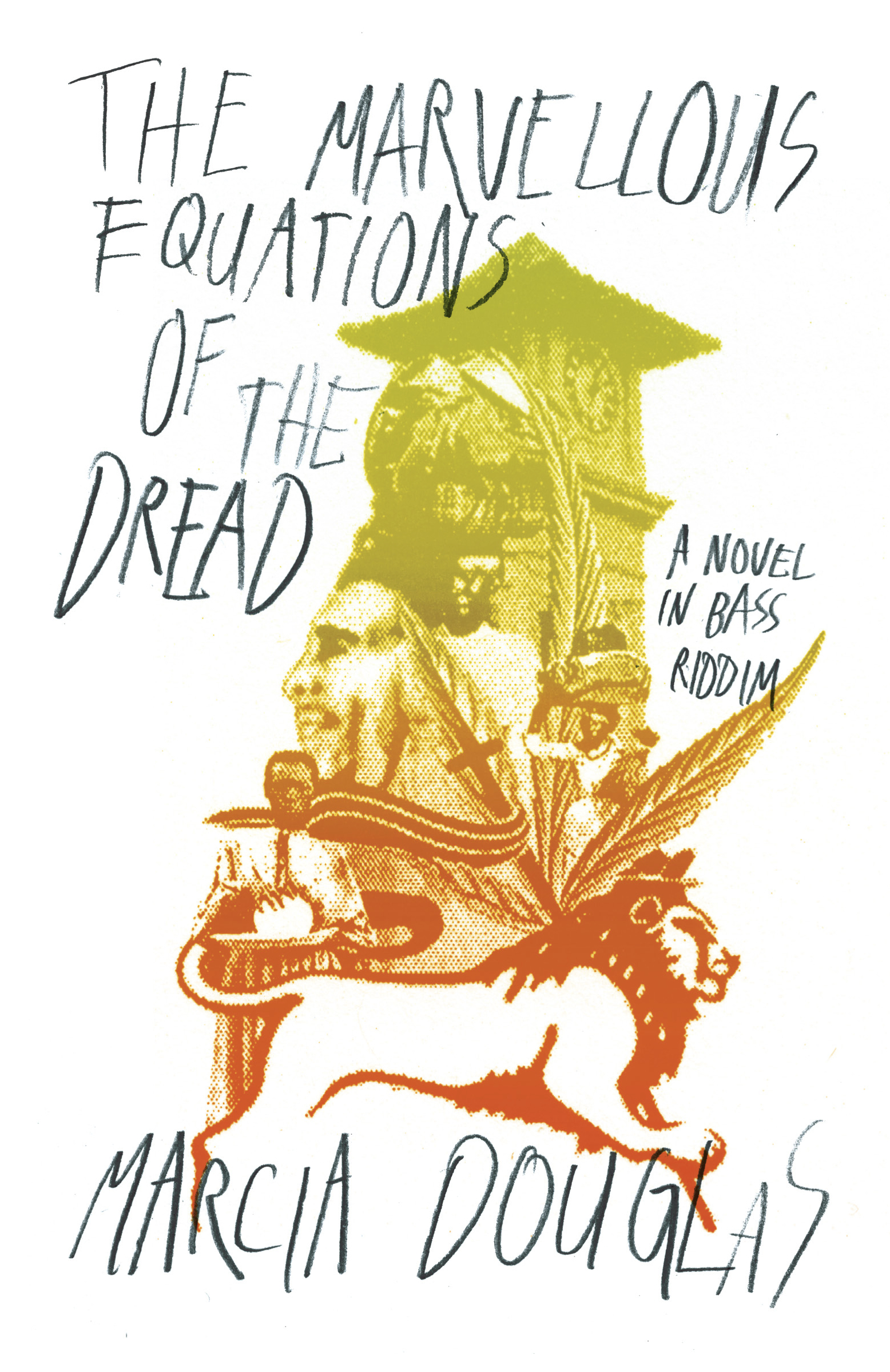
Format: 304 pp., paperback: Size: 5.5″ x 8″; Publisher: New Directions; Unique Narrative Threads: 22; Year of Bob Marley’s birth: 1945; Year of Bob Marley’s death: 1981; Estimated Rastafarians in Jamaica, 2001: 30,000; Estimated Rastafarians in England and Wales, 2001: 5,000; Representative Sentence: We had found our own God; told our own story; fashioned our I&I language; trod to our own riddim without their consent; held our knotty dreads high; everything on our own terms, I-fiantly.
Central Question: Can you remix the historical novel and make it new again?
In Marcia Douglas’ The Marvellous Equations of the Dread, Bob Marley is dead. But he has been reincarnated as a “fall-down”—a homeless town drunk—and is sleeping at nights in a Kingston clock tower, yelling about the past and arguing with the ghosts of the likes of Marcus Garvey and Edward VII while lighting spiffs through bouts of general emotional dyspepsia. The only living person who recognizes Mr. Marley in his new form is Leenah, a woman he met years before in London. To exacerbate his dreadful scenario, whenever Marley leaves his perch in the historic clock, five years pass in Kingston. It is distressing, but what does five years mean to a dead man? The arrow of time only really matters to the living, so how do a life and the constituent parts of it line up when you look at them from the fixed endpoint of death? What does the history of a nation—stretching back to other, faraway nations on another continent—look like from this perspective?
The book is subtitled A Novel in Bass Riddim, and it suggests that to the dead and the angels around them, time and history arrange themselves a mix tape. And more than a novel, this novel is also overtly that mix tape. Douglas has designed this miraculous book to have a flow—a bass rhythm—but also, like a CD-R you’d burn for a friend, to demonstrate connections between notions you thought were disparate, and to get you interested in something you didn’t know by showing it next to something you already like. Poems and novels and mix tapes are fine places for the dead and living to commune and converse, plus: when it comes to making a mix, you can’t go wrong with Bob Marley.
Crafting a mash-up of the historical, fictional, fantastical, lyrical, and musical allows Douglas to let her imagination play on equal footing with history in a way few novels have—the ambition, and its execution, are staggering. The book establishes Bob Marley as the eternal president of the Jamaican people. Robert Coover’s splashy and magically real Richard Nixon invective The Public Burning...
You have reached your article limit
Sign up for a digital subscription and continue reading all new issues, plus our entire archives, for just $1.50/month.
Already a subscriber? Sign in




